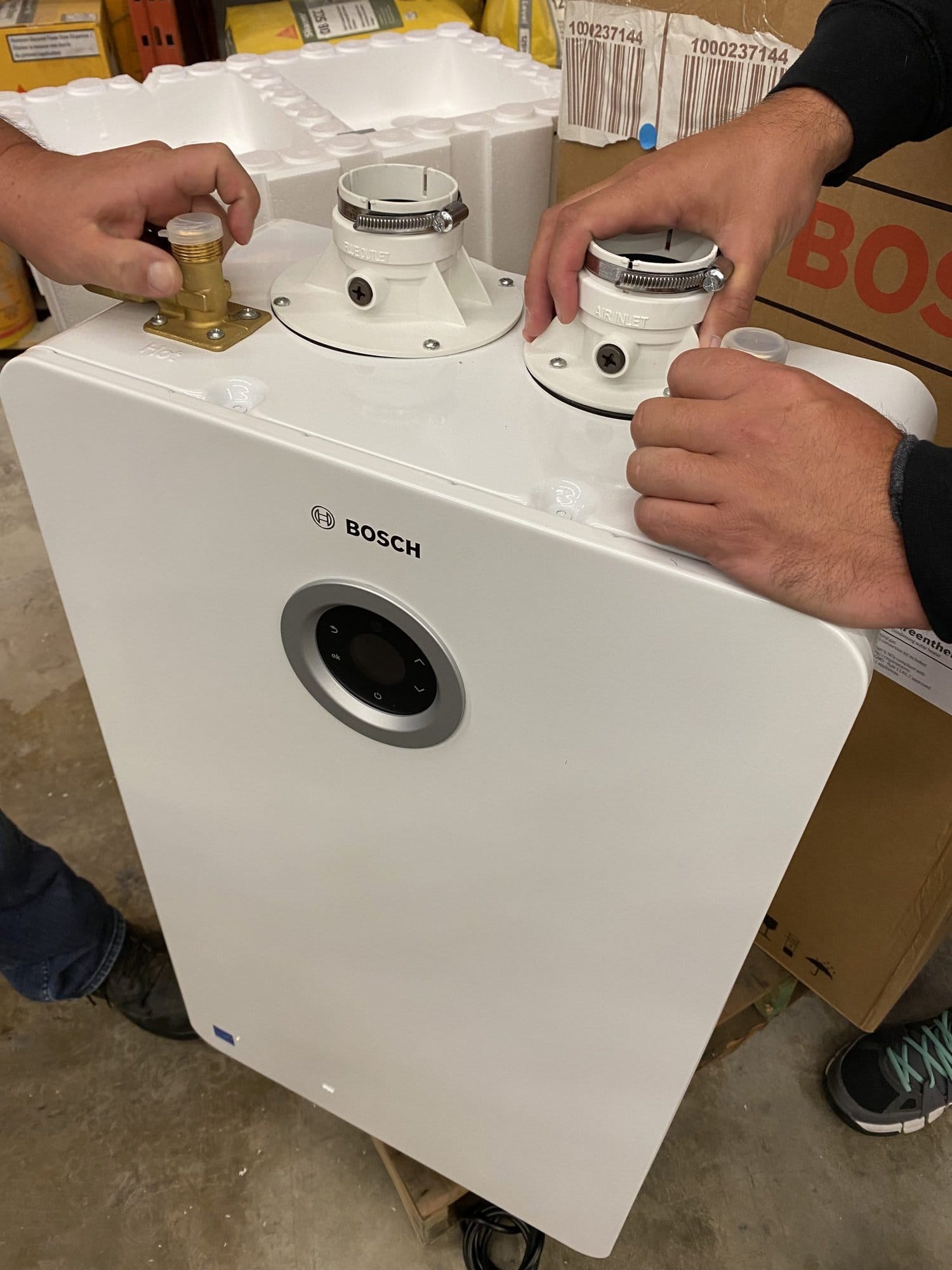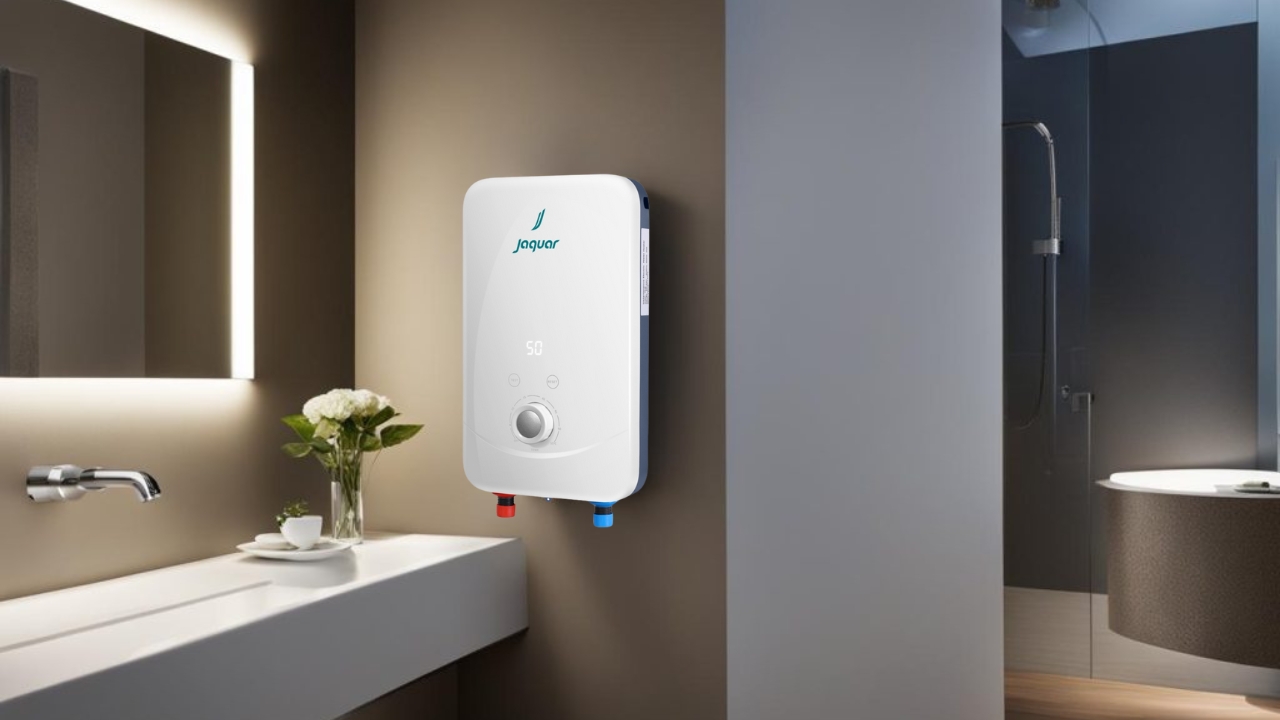What On-Demand Water Heaters Grant Key Benefits
What On-Demand Water Heaters Grant Key Benefits
Blog Article
The publisher is making several great annotation about Unveiling the Hot Trend: The Benefits of Tankless Water as a whole in this post down below.

In a world where benefit and efficiency preponderate, it's no surprise that property owners are frequently looking for smarter methods to handle their home's energy consumption and comfort. One development that has actually continuously gained popularity is the tankless water heater. But exactly what makes these systems attract attention from the standard tank-based designs a lot of us matured with? Let's dive in and discover the benefits of tankless hot water heater, assisting you make a decision if it's time to make the button in your home.
Introduction
Picture this: you enter the shower after a long day, expecting a soothing waterfall of hot water, just to be welcomed by icy droplets due to the fact that the last person utilized all of it up. Noise familiar? Typical water heaters store a set amount of warm water, meaning you go to the grace of that tank's supply. Tankless systems, on the other hand, warm water as needed. No more going out mid-shower, say goodbye to wrestling with routines simply to make certain hot water is readily available.
Understanding Tankless Water Heaters
What Are Tankless Hot Water Heater?
Tankless hot water heater, in some cases called on-demand or immediate hot water heater, supply warm water only as it's required. Rather than keeping gallons of pre-heated water, these systems kick right into activity the moment you activate the faucet. Water passes through a warm exchanger, warming up in real-time, meaning you get a nonstop flow of warm water without the demand for a large tank resting idly by.
How Do They Differ from Standard Solutions?
Traditional heating systems hold a storage tank of hot water, using power to keep that container at a consistent temperature. Tankless devices eliminate the standing supply, lowering wasted energy and the large impact of a big cyndrical tube. Essentially, you're updating from a "stockpile" frame of mind to a "made-to-order" approach.
Typical Sorts Of Tankless Systems
Tankless hot water heater typically come in 2 ranges: gas and electric. Gas models tend to provide higher circulation prices, ideal for bigger households, while electric models usually offer smaller sized homes and are generally simpler to set up. Furthermore, some systems are made for point-of-use (serving one component) while others can deal with the entire home's hot water demands.
Trick Advantages of Tankless Hot Water Heater
Power Effectiveness and Cost Financial Savings
No more heating a giant container's worth of water and maintaining it toasty all day. Tankless heating systems reduce standby power losses, which can decrease energy costs. While the first cost may be higher, the lasting cost savings frequently justify the financial investment.
3. Space-Saving Style
If your home is short on storage space, getting rid of the cumbersome tank frees up important area. Tankless systems are compact and can often be installed on walls, stashed in corners, or set up in tight utility storage rooms without hogging the whole room.
4. Longer Life expectancy
A well-maintained tankless water heater can outlast its tank-based relative. Typical containers could last 10-15 years, while tankless designs can keep downing along for twenty years or more, making them a strong investment over time.
1. Countless Hot Water Supply
Ever before needed to arrange showers so every person gets their reasonable share of hot water? With tankless, that ends up being a thing of the past. As long as the heater's flow ability isn't exceeded, you can take back-to-back showers without becoming a popsicle.
5. Improved Water Top Quality
Storing water in a container can sometimes result in sediment accumulation or a slightly "off" preference. With tankless systems, fresh water is heated instantly, decreasing the possibilities of debris buildup and potentially supplying cleaner-tasting water.
Considerations Before Changing
Though the benefits are compelling, it's smart to take into consideration a couple of aspects before completely committing.
Examining Your Home's Water Usage Patterns
If your home at the same time uses numerous components with high warm water demand, make sure the device's circulation price meets your requirements. Understanding your usage patterns aids you choose the ideal dimension and kind of tankless heating unit.
Maintenance and Treatment Tips
Tankless systems are reasonably low maintenance, yet they aren't set-it-and-forget-it devices.
Normal Cleaning and Descaling
Difficult water minerals can build up in the heat exchanger, impacting efficiency. Routine descaling (often advised annually) maintains the device running at peak performance.
Yearly Specialist Evaluations
A yearly checkup from an expert makes certain small concerns are caught early. They'll examine the system's performance, try to find leakages, and aid maintain ideal performance.
Preliminary Financial Investment Costs
Tankless heaters typically come with a greater upfront cost. Between the device itself and possible setup adjustments, the initial price might offer you sticker label shock. But bear in mind to see it as a long-term financial investment.
Installment Needs
Depending on your home's infrastructure, you could require added electrical ability or gas line upgrades. Ensure you understand the setup needs and talk to a professional to prevent shocks.
Ensuring Appropriate Ventilation
For gas versions, correct ventilation is necessary to securely eliminate exhaust gases. See to it airing vent systems are tidy and correctly installed to prevent any kind of prospective safety and security hazards.
Contrasting Different Brands and Models
Not all tankless hot water heater are produced equal.
Investigating Dependable Suppliers
Look for credible brand names with a history of generating quality systems. A trustworthy supplier often provides much better customer assistance and longer warranties.
Installment: Do It Yourself or Specialist?
While some home owners cherish dealing with tasks themselves, tankless installment may not be the very best time to break out the toolbox.
Advantages and disadvantages of Do It Yourself Setup
A DIY mount could conserve money, yet it includes risks. Wrong installation can bring about ineffectiveness or safety issues. If you're handy and have experience, it may be practical-- however wage caution.
Reading Reviews and User Feedback
Customer testimonials and responses from neighbors or close friends who have gone tankless can use useful insights. Occasionally, real-life experiences can be a lot more telling than advertising sales brochures.
When to Call an Expert Plumbing
For most, calling a pro makes sure whatever's done appropriately. An expert plumbing professional recognizes regional codes, sizing needs, and venting parameters, lowering the danger of problems.
Optimizing Efficiency
You've invested in a tankless system-- currently optimize its efficiency.
Optimal Temperature Setups
Most individuals set their devices between 120-140 F. Readjusting the temperature can boost comfort and financial savings. Experiment to find a wonderful area that doesn't lose power.
Pairing with Low-Flow Fixtures
Wish to stretch your system's capacities? Consider installing low-flow showerheads and taps. They reduce water use, permitting your tankless system to provide a stable stream of hot water without straining.
Environmental Influence
Tankless water heaters align with greener living objectives.
Lowered Carbon Footprint
By using much less energy and only home heating water as needed, tankless systems can decrease your home's carbon footprint, decreasing your ecological impact.
Conserving Natural Resources
Much less power usage and much less wasted hot water convert right into less natural resources being utilized, an ecological win-win.
Who Benefits Most from Tankless Heating systems?
The charm of tankless heating units is that they can suit a selection of families.
Big Families vs. Solitary Owners
Huge families might love the unlimited warm water supply, while solitary residents appreciate the energy savings from not warming a whole tank for just one person's morning shower.
Property Owners with Limited Room
If your home is short on square video, losing the bulky container maximizes room for various other basics-- or perhaps just extra elbow room.
Eco-Conscious Customers
Going tankless aligns with eco-friendly values, guaranteeing you're not squandering power or resources.
Future Trends in Tankless Water Heaters
The world of home devices is ever-evolving, and tankless water heaters are no exception.
Innovations in Modern technology
R&D is constantly boosting warmth exchangers, making devices a lot more effective and sturdy. Future versions might be also quieter, much more portable, and better fit for varying climates.
Smart Home Assimilation
Imagine changing your water heater's temperature level through an app or obtaining maintenance signals on your phone. As smart home technology developments, we'll see even more connectivity and ease.
Verdict
Picking a tankless hot water heater is greater than simply updating your home's warm water system; it's purchasing long-lasting comfort, energy effectiveness, and a greener way of life. By considering your home's water use, being mindful of installment demands, and devoting to regular maintenance, you can appreciate a steady stream of warm water without the luggage of a cumbersome tank. As technology progresses, you can look forward to even smarter, extra effective tankless options that not only make your life easier yet additionally benefit the earth.
Why You Should Consider a Tankless Water Heater for Your Home
Energy Efficiency and Cost Savings
Tankless water heaters, also known as on-demand water heaters, heat water only when needed. This means they don't waste energy keeping a tank of water hot constantly. This efficiency translates into substantial cost savings on your monthly energy bills.
Endless Hot Water Supply
One of the significant advantages of tankless water heaters is their ability to provide a continuous supply of hot water. Traditional tank water heaters have a limited capacity and can run out of hot water, especially during peak usage times. In contrast, tankless water heaters can provide an endless stream of hot water, making them ideal for larger families or homes with high water usage.
Space-Saving Design
Tankless water heaters are compact and take up significantly less space compared to traditional tank heaters. They can be installed on walls, under cabinets, or even outside, freeing up valuable space in your home. This makes tankless water heaters a great option for smaller homes or properties with limited space for a traditional water heater.
Longer Lifespan and Lower Maintenance
Tankless water heaters typically have a longer lifespan compared to traditional tank heaters. They can last up to 20 years or more with proper maintenance. Additionally, tankless systems are designed with replaceable parts, which can extend their lifespan further and reduce long-term maintenance costs.
Environmentally Friendly
Reducing energy consumption not only saves you money but also benefits the environment. Tankless water heaters contribute to a smaller carbon footprint by using less energy to heat water. Their energy efficiency and ability to minimize standby heat loss make them an eco-friendly choice for environmentally conscious homeowners.
Customized Temperature Control
Tankless water heaters offer precise temperature control, allowing you to set the desired temperature to meet your specific needs. This level of customization ensures you always have water at the perfect temperature for your comfort and usage requirements.
https://beantownservices.com/blog/consider-tankless-water-heater-for-your-home

We were shown that article on Six Benefits of a Tankless Hot Water Heater from a friend on a different web blog. Liked our posting? Please share it. Let other people discover it. We take joy in reading our article about Pros and Cons of Tankless Water Heater.
See Availability Report this page